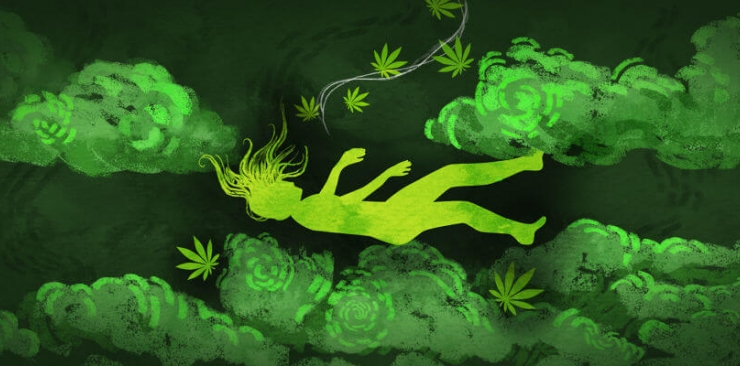Daily Cannabis Use Linked to Longer Sleep Duration
American researchers have conducted a study on how cannabis use affects sleep patterns in older adults. The specialists found that daily consumption of cannabinoids leads to an increase in sleep duration.
Cannabis Does Not Affect Sleep Quality
The study involved 17 participants aged 50 to 70. Volunteers were given smartphones to complete tests and wrist accelerometers to measure sleep phases. Over two weeks, the participants reported whether they used cannabis, their bedtimes and wake-up times, and completed four surveys per day. After analyzing the data, researchers discovered that:
- Participants who used cannabis daily slept an average of 30 minutes longer.
- Smoking cannabis did not affect sleep quality or fragmentation (the number of brief awakenings).
Experts believe that cannabis may help older adults overcome insomnia. However, doctors want to conduct large-scale clinical trials to determine the optimal dosage, the best THC to CBD ratio, the most effective method of consumption, and the ideal timing for cannabinoid intake. Researchers also plan to compare the effectiveness of cannabis with sedatives and sleeping pills. If the plant proves to have therapeutic effects with fewer side effects, cannabis could become an alternative treatment for insomnia.
Cannabis Relieves Sleep Disorders in Most Cases
According to surveys, 84% of Americans who use cannabis for insomnia rated its effectiveness as “good” or “excellent.” Additionally, 83% of people with sleep disorders were able to reduce or stop taking sleeping pills after they began using cannabis. Users report that cannabis calms, relaxes, and neutralizes the main causes of insomnia: pain, anxiety, and stress.
Effect Depends on Dosage and Frequency
However, scientific studies show that the effects of cannabis depend directly on THC dosage and frequency of use. For example, Israeli researchers conducted experiments on patients with chronic pain and found that smoking cannabis once a week reduced the number of nighttime awakenings and helped people fall asleep faster. In contrast, volunteers who used cannabinoids daily experienced the opposite effect: they woke up more often at night and had more difficulty falling asleep. According to study author Sharon Schnitman, this phenomenon is due to the development of THC tolerance as a result of regular cannabis use.



